Deputy Prime Minister Tran Hong Ha said that based on the science and technology career funding source, we will invest in the most modern labs to master the microchip industry value chain.
The message was delivered by Deputy Prime Minister Tran Hong Ha at the launching ceremony of the Electronic Semiconductor Center (ESC) established by the Ho Chi Minh City Hi-Tech Park on the afternoon of September 6. Sharing his vision for the development of the microchip industry, he said that based on human resources from universities, state-owned enterprises will invest in modern labs to master the entire value chain of the microchip industry, up to the marketing stage. "This is an investment for development, for the future, so I personally, on behalf of the Prime Minister, pledge to carry out these tasks in the coming time," he said.
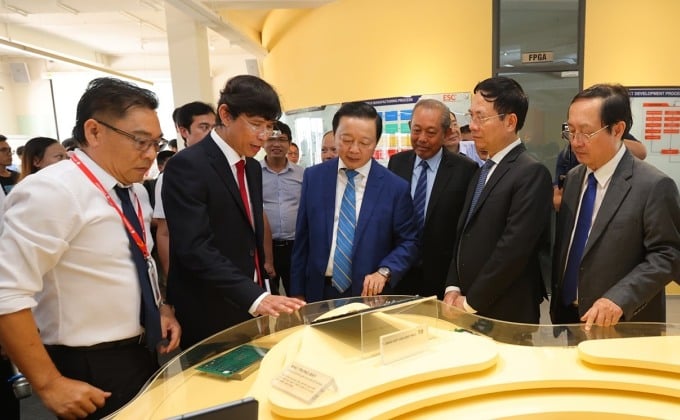
Deputy Prime Minister Tran Hong Ha (third from left) and leaders of ministries and sectors visit the Semiconductor Electronics Center on the afternoon of September 6. Photo: Organizing Committee.
Sharing his views on domestic microchip training, the Deputy Prime Minister said that Vietnam needs to learn from design, simulation modeling, manufacturing, calibration, and measurement. If necessary, the state is ready to invest from the science and technology career source. In the microchip industry, the Deputy Prime Minister said that to go far, it is not enough to just hold hands and show people how to do things, but it is necessary to have basic research and understand core technology, know how to learn and transfer, and understand the nature of technology.
To do this, he believes that in the coming time, the Law on Science and Technology, Education and Training needs to be adjusted, with a mechanism for universities to be places for startups, basic research, and training of post-graduate human resources in the field of microchips. However, he believes that the amount of microchip human resources needed does not come from training but from supply and demand. Therefore, it is necessary to have policies to attract businesses in various industries, encouraging them to participate in the microchip industry ecosystem.
He believes that with domestic human resources, it is possible to do the initial design stage, learn from specific models in the incubator, then innovate to master the technology with the mindset of "going behind but finding another way to get ahead".
The Deputy Prime Minister affirmed that the Government is committed to working with Ho Chi Minh City to listen to businesses, scientists, lecturers... to connect 70,000 businesses to digital transformation and operate in the electronics sector to create demand and development for the semiconductor industry. "A country cannot have a strong semiconductor industry without a team of intellectuals and people who are knowledgeable and have full knowledge of these fields," he said.
He acknowledged that the microchip industry in Vietnam will face many difficulties in investing in this technology because many countries that have gone before them have spent billions of dollars. However, Ho Chi Minh City's choice to exploit human resources, mobilizing resources to attract talent to develop microchips is a very correct direction. "Human resource training is the first step that needs to be done," the Deputy Prime Minister said, adding that this is the factor that leads the game in the microchip industry.
According to Chairman of the Ho Chi Minh City People's Committee Phan Van Mai, Resolution 98 was passed by the National Assembly on piloting a special mechanism for the development of Ho Chi Minh City, allowing the city to pilot policies on science and technology development, innovation, and incentives for strategic investors... With these policies, the Ho Chi Minh City government continues to research and further develop science and technology infrastructure, adding facilities to serve high-tech industries, including semiconductors. In addition, the city is piloting a sandbox model (policy testing) to both promote science and technology activities in Ho Chi Minh City and serve as a basis for larger-scale replication in the future. "The city is committed to becoming a center for the development of the semiconductor industry and a center for science, technology, and innovation of the country, with regional and international competitiveness," said Mr. Mai.
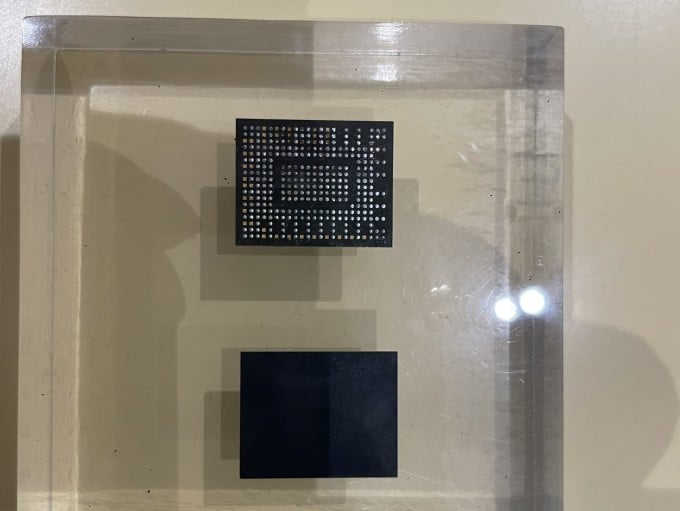
A microchip product on display at ESC. Photo: Ha An
The Electronic Semiconductor Center (ESC) was established by Ho Chi Minh City Hi-Tech Park in collaboration with Sun Electronics Group and Synopsis on the basis of merging the Microchip Design Training Center (SCDC) established in August 2022 and the International Electronics Training Center (IETC) operating in March. According to Ho Chi Minh City Hi-Tech Park, the merger of these two organizations aims to expand cooperation into a large enough microchip training unit that can meet the requirements of major investors and create conditions to attract larger-scale international cooperation programs in the future. In addition, ESC will be the unit organizing the microchip incubation program to support the formation of domestic microchip design enterprises.
Nearly two months ago, Ho Chi Minh City National University announced the establishment of a training program to train about 1,000 microchip design engineers in five years, contributing to increasing the number of human resources in this industry nationwide.
Ha An
Source link








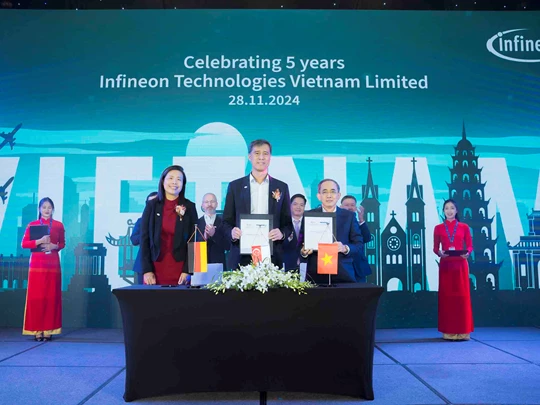



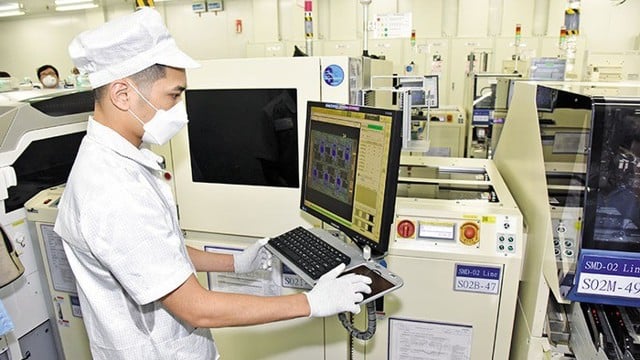

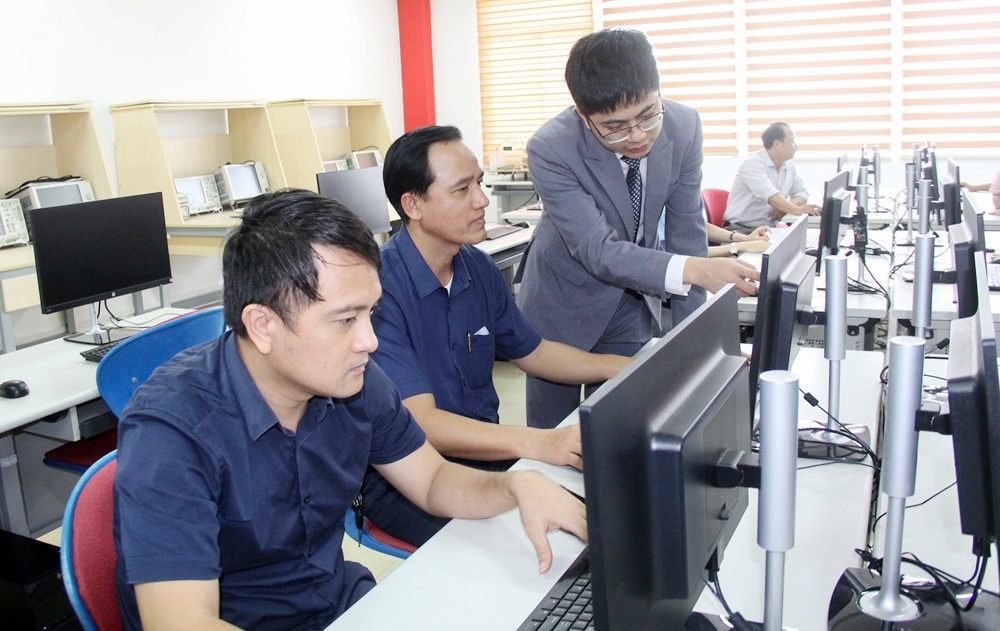

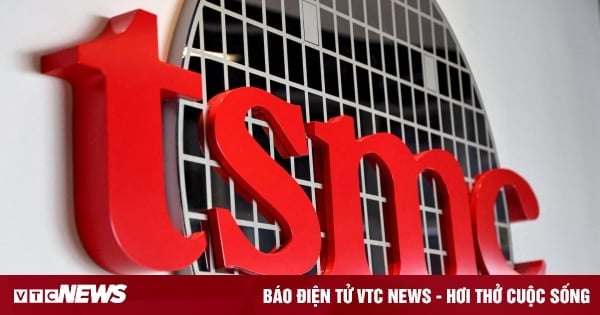

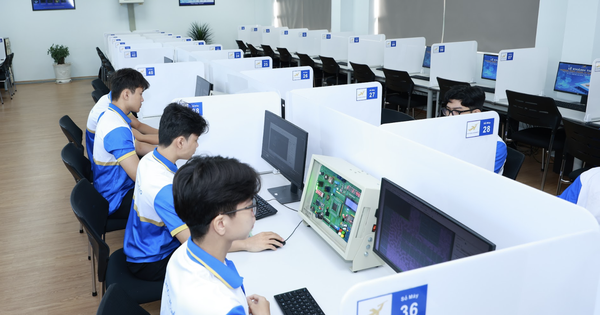

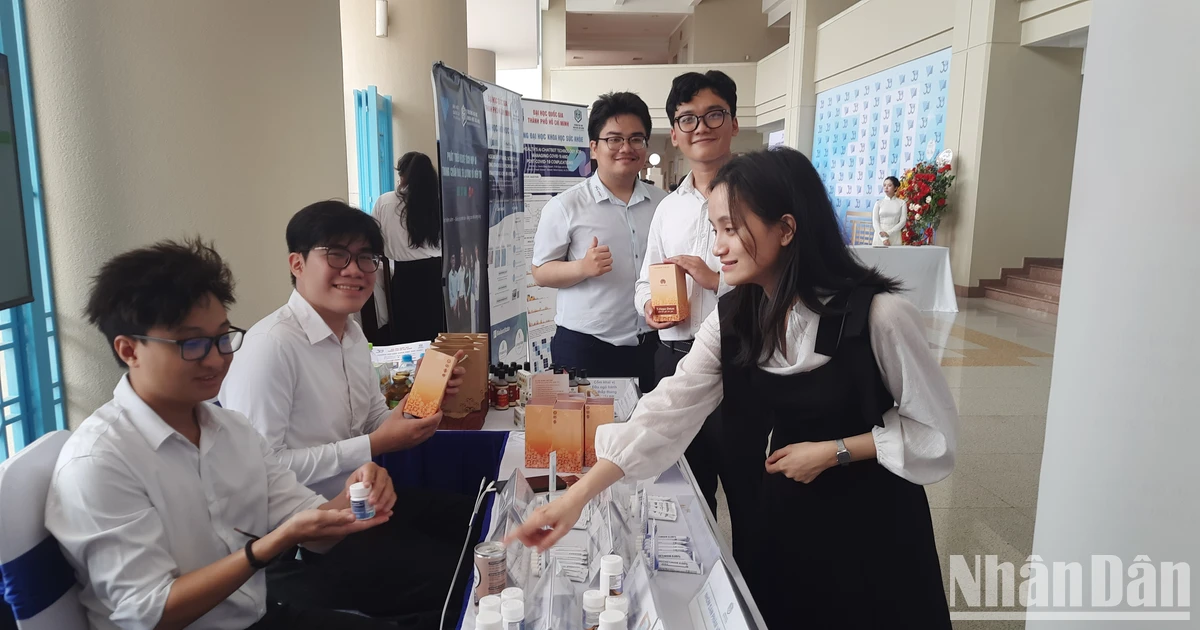

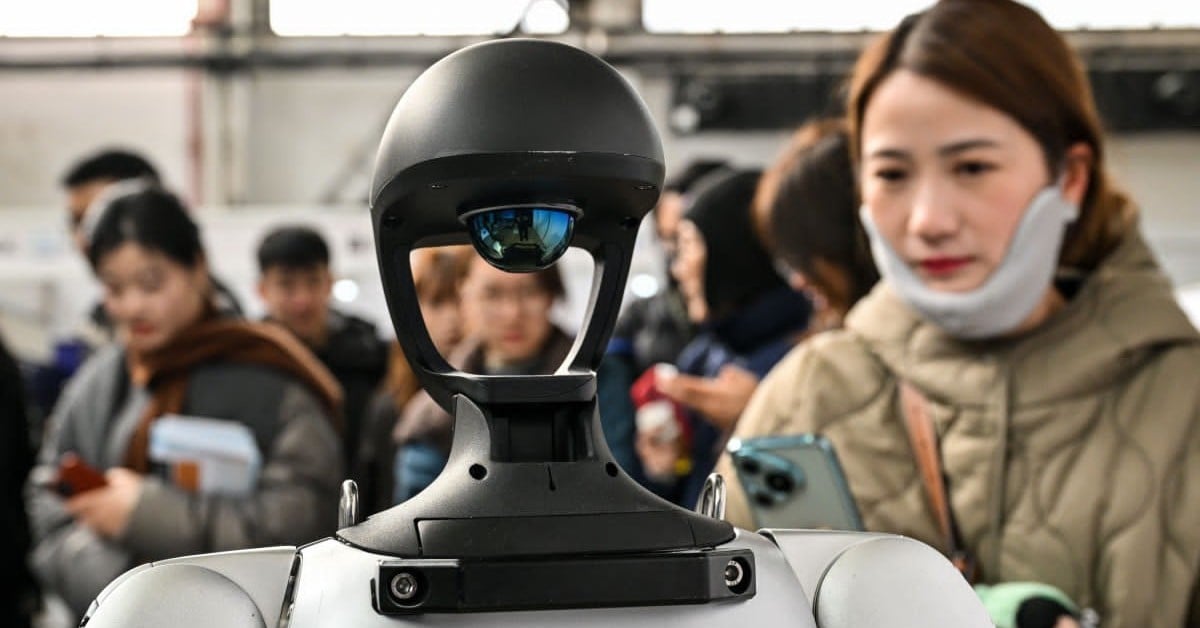
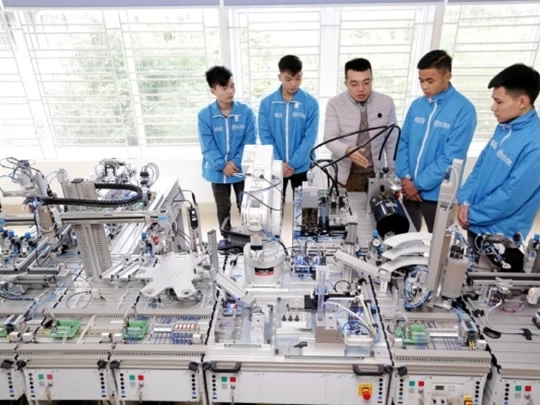


















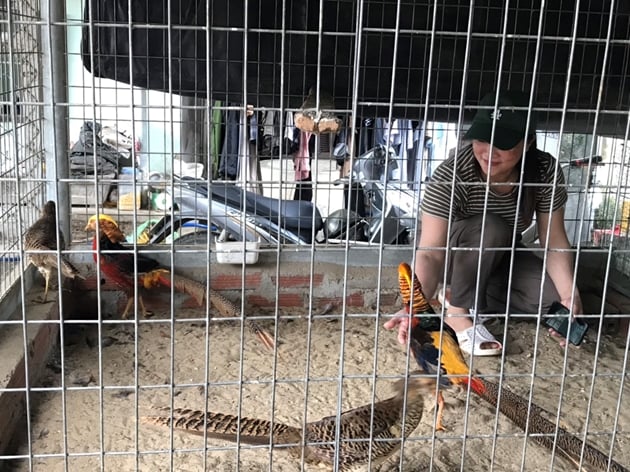



Comment (0)